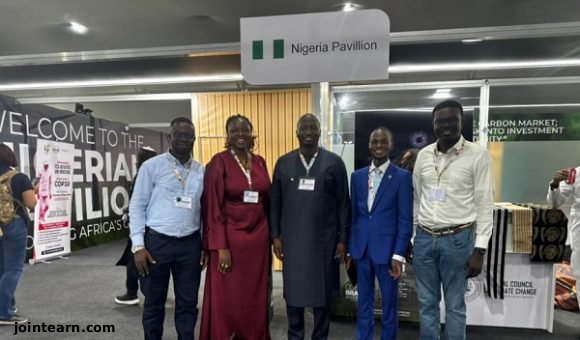
The National Agricultural Land Development Authority (NALDA) has unveiled a bold initiative to generate high-integrity carbon credits through its network of farm estates, aiming to accelerate rural wealth creation while supporting Nigeria’s ambition to become a middle-income economy.
Speaking at NALDA’s COP30 side event in Belém, Brazil, Executive Secretary/CEO Cornelius Adebayo described the project as both a climate intervention and a socio-economic strategy designed to empower farmers.
Under the Renewed Hope Mega Farm Estates programme, each farmer is allocated five hectares of farmland, providing a sustainable income source while enabling them to earn from carbon credits generated through structured tree planting and reforestation efforts. The estates, which range from 5,000 to 25,000 hectares, are fully mechanised, featuring access roads, irrigation systems, processing hubs, energy infrastructure, and perimeter fencing lined with climate-resilient trees. These trees are cultivated to produce certified carbon removals, ensuring credibility in the voluntary carbon market.
Adebayo said:
“We want to move Nigerians from a low-income bracket to a true middle-class economy. By combining agricultural productivity with carbon-credit earnings, farmers can become independent, prosperous, and globally competitive.”
During the event, NALDA also showcased its Plantation Carbon Roadmap, which brings over 20,000 hectares of restored and rehabilitated plantations under strict Monitoring, Reporting, and Verification (MRV) protocols to maintain transparency and integrity.
“Every credit earned must translate into improved incomes, restored landscapes, and strengthened food systems. That is the value we bring to global climate action,” Adebayo added.
The agency also signed new cooperation agreements to enhance verification capacity, align registry systems, and expand international collaboration. The side event attracted climate negotiators, development partners, private-sector leaders, technical experts, financial institutions, and global observers, highlighting NALDA’s model for integrating climate finance with agricultural development.


Leave a Reply